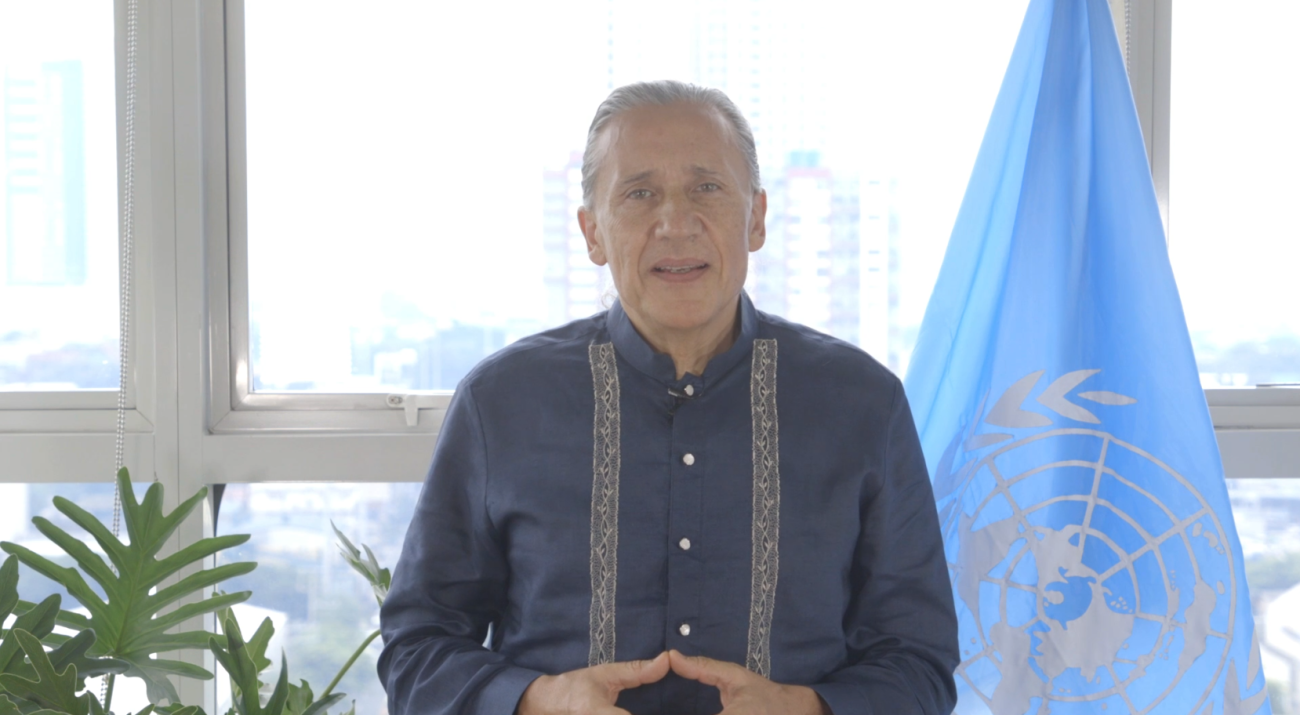UN Philippines chief advocates education transformation in the Bangsamoro

Mr. Gustavo Gonzalez enjoins Bangsamoro stakeholders to take unique opportunity to share views, positions and ideas on how to rethink education in the country
The text of the UN Resident Coordinator Gustavo Gonzalez's message follows:
Honorable. Minister Mohagher Iqbal,
Director-General Abdullah Salik Jr. (Basic Education, MBHTE)
Dir. Roger B. Masapol (DepEd Planning Service)
As-salamu alaykum,
Maganda umaga sa inyong lahat
First of all, I want to congratulate the Government of BARMM for organizing this consultation in preparation for the Transforming Education Summit.
We are proud, as United Nations, to be part of this process. I am also glad that our leading agencies UNICEF and UNESCO are hand-in-hand supporting the Government of the Philippines and the Bangsamoro authorities.
I am persuaded that the results of this two-day consultation will be an important contribution to the position that the Philippines will set at the upcoming Summit in September, in New York.
But beyond the Summit, I hope that the results of these consultations will help placing education at the center of BARMM's development agenda.
As we know, education is more than what we see in a classroom.
Education is science, education is work, education is culture, education is democracy, technology, education is also a human right.
And experience shows that the countries that invest the most in education are the ones that best build their future. The future of any nation relies on the quality of its Education.
We know that the COVID-19 pandemic has seriously impacted education systems in many countries around the world.
The closure of schools has sent off alarms of a “global learning crisis”.
And the Philippines is not an exception in this global crisis. Many reports have recently reflected the serious situation of the education in the country and also in BARMM.
Many specialized organizations have also warned that unless action is taken, learning losses may continue to accumulate once children are back in school, endangering future learning.
The preparations for the upcoming Transforming Education Summit are a unique opportunity to share views, positions and ideas on how to rethink education in a changing world.
The Summit will provide a unique opportunity to reinvent education revitalizing efforts to achieve Sustainable Development Goal 4 by 2030.
Four principles guide the preparations for the Transforming Education Summit:
Number One, it should be country-led.
I am glad to note that national government has taken strong leadership in these consultations. The recent appointment of Vice President Sara Duterte, in her capacity as Secretary of Education, as the National Convenor for the TES reflects government’s commitments with this process.
Number Two, it should be inclusive.
We recognize that it is critical for the voices of the people in BARMM to be heard in the national consultation process. I am also pleased that the Ministry of Basic, Higher and Technical Education is engaging NGOs, the private sector, schools and universities in BARMM in this process.
Number Three, it should be youth-inspired.
The UN Secretary General has made special emphasis of the importance of the role of the youth in shaping the Summit, and making sure the Summit itself is prepared with, and for, the youth.
I am hopeful that the messages from yesterday’s consultation session with the youth and adolescents of BARMM will be fully reflected and incorporated in today’s discussions.
And Number Four, it should build on existing efforts.
I understand that today’s event is also part of the BARMM Regional Government’s process of consultations for the Bangsamoro Education Reform and Development Plan. Linking both processes is a great initiative.
From the UN perspective, we are advocating for the following priority actions:
- Reopen all pre-schools, schools and learning centers as soon as possible with 5 days a week of in-person classes.
- Conduct rapid literacy and numeracy assessments nationwide and launch an emergency learning recovery plan targeting foundational and socioemotional skills.
- Elevate the value of the teaching profession with corresponding investments in increasing compensation, training, benefits, protection, career advancement, and reduction of non-teaching activities.
- Launch a digital learning national program to provide connectivity to all schools by 2030, devices with learning apps to all students in last-mile schools and rural areas, and digital teaching trainings.
- Increase budget allocation in the education system to implement the Basic Education Development Plan 2030 and commitments to the Transforming Education Summit, including reaching 6 percent of GDP by 2030 (with yearly increases of 0.5 percentage points); at least 20 percent of the national budget; and increase special education funds share to at least 2 percent for municipalities.
Your perspective of the future of education and the way education should be transformed is vital to accelerate the Sustainable Development Goals on Education.
I wish you productive discussions ahead.

